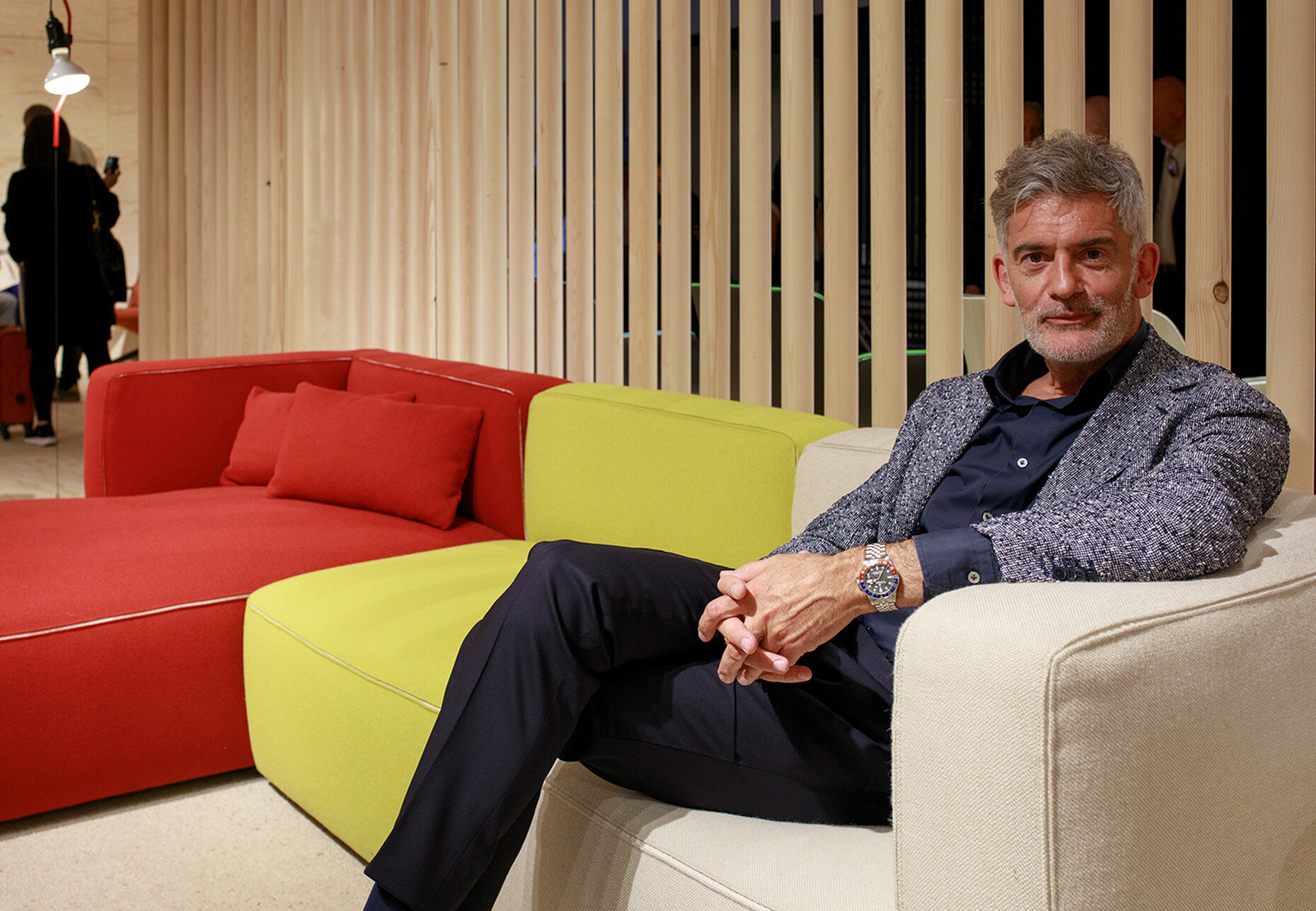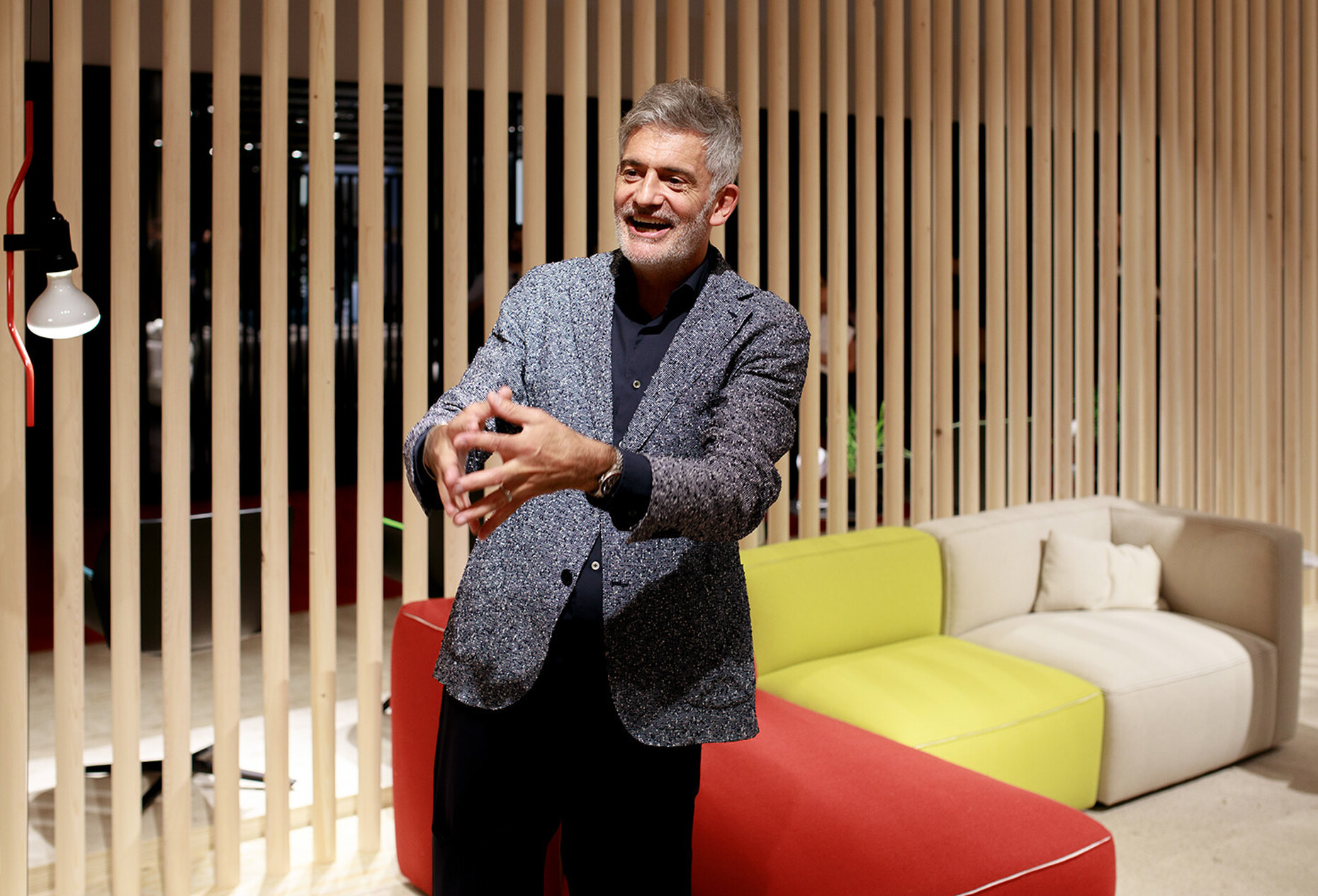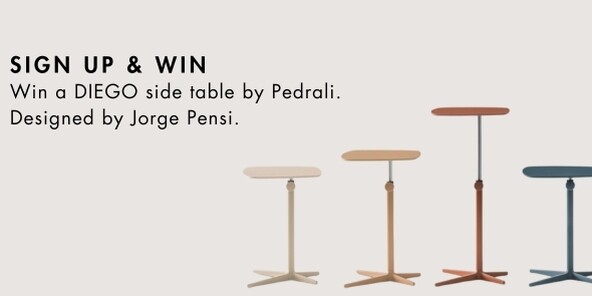SALONE DEL MOBILE 2018
A sofa as passe-partout
Fabian Peters: Alfredo, in my view you have designed a pleasantly un-modern sofa with “Dado”. Finally, no sprawling ensembles or seating depths that make your feet dangle in the air when you lean against the backrest.
Alfredo Häberli: Well actually that’s always been my approach. I have never created loud design simply to make sure the interior design magazines had something to write about. Of course it’s ok to do that sometimes, but I wouldn’t want to live with that kind of furniture. That said, the “Dado” does in fact come in two seating depths: Alongside the 60-centimeter version there is also the 80-centimeter one, which is a bit better for lounging about on. The sofa is designed to be a passe-partout of sorts that can work in private homes as well as in restaurants, hotels and lobbies. That’s also why there are different seating depths and positions.
Which role did the sofa’s inner workings play in the design?
Alfredo Häberli: That’s simply invisible quality! There are firms like Cappellini, who do it in a way that’s ... and there are others, like B&B or Flexform, who really know a thing or two about upholstered furniture. Andreu World has long since managed to acquire a great deal of knowhow in the area. Which is so important: After all, a sofa is something you live with for a few years. It has to look good three years in – even when it’s used in a hotel and by hundreds of people every week.
Does the production technique determine the design or vice versa?
Alfredo Häberli: Ultimately when it came to awarding me the contract it did of course play a role that I am very experienced in upholstered furniture. However, Andreu World itself has a great deal of knowhow, too. What’s really great in this occupation is that things often turn into a kind of ping-pong, the design process becomes all about give and take.
Are there certain basic technical requirements that you expect?
Alfredo Häberli: Well to start with: I don’t compromise. If my vision cannot be implemented then of course I have to change the design in such a way that the manufacturer can execute it. But if I was to find that my idea of quality doesn’t match that of the client I would immediately stop the project. That would be like you writing a book and the publisher requesting that you change all of the characters in it. It would mean giving up control over your own work.
To what degree do you design a project like this with a certain cost framework in mind?
Alfredo Häberli: That comes up quite quickly, and much faster nowadays than it did ten years ago, too. When I include a detail like the split seam in this sofa that increases costs – and it will either pay off or it won’t. By the same token I am only able to aim at an end price for a product with my design to a certain extent – after all, things like cover materials will ultimately dictate that outcome.
So what was it like when you were working on this sofa?
Alfredo Häberli: I think we have developed a product here that is going to be offered at a very good price while still including an interesting detail in the design – and it is also being manufactured in Spain from start to finish.


















